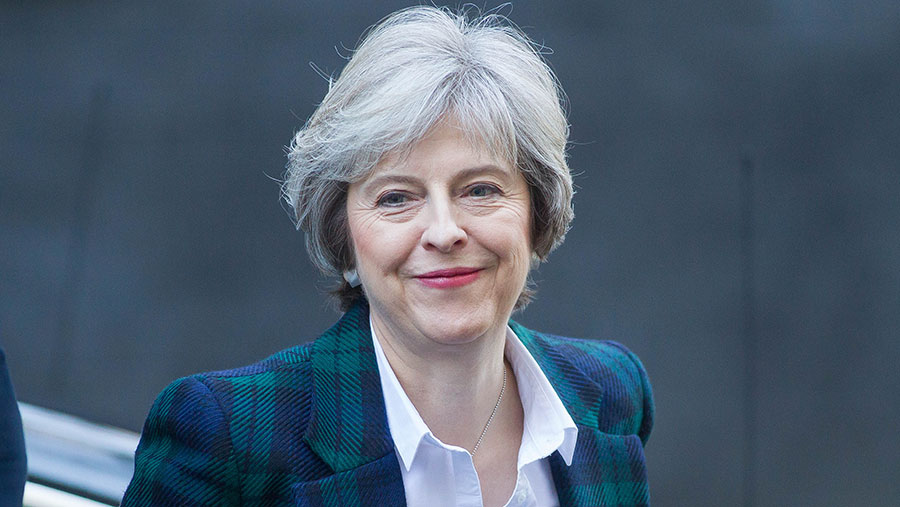Opinion: We’re facing farm policy anarchy
 © Rex/Shutterstock
© Rex/Shutterstock I travelled to Suffolk to speak to a group of farmers last month. My talk was titled: ‘Hands up, the farmer turkeys who voted for Christmas by voting to leave the EU?’
At this meeting, 10% of the audience (rather sheepishly) owning up to having voted for Brexit.
A much larger poll conducted by Farmers Weekly in the lead-up to last year’s In/Out referendum showed that about two-thirds of the 1,600 UK farmers polled intended to vote Out.
See also: We have neglected our soils for too long
But who could currently blame British farmers if they feel increasingly reticent about owning up to having voted Out, given that the full extent of UK farming’s exposure to the potential negative financial consequences of Brexit is becoming more apparent by the day?
 Stephen Carr farms 800ha on the South Downs near Eastbourne with his wife Fizz
Stephen Carr farms 800ha on the South Downs near Eastbourne with his wife FizzIn the run-up to the referendum last June, the “Leave” campaign was full of reassurances to farmers that Brexit posed little risk to agriculture.
Our subsidies would be replaced by equivalent amounts of money through a “British Agricultural Policy” (BAP).
This bespoke BAP would address the UK’s increasing dependence on food imports and reduce “Brussels’ red tape”.
Even the potential loss of access to EU workers (on which British horticulture and dairying are particularly dependent) was glossed over as not a problem as the old Seasonal Agricultural Workers Scheme would simply be reintroduced.
What a difference 10 months make. Government ministers now tell us that any post-Brexit agricultural budget will have to compete with other departments like the NHS and education.
Bells ringing
Farming is hardly mentioned in government policy or trade discussions; Theresa May instead announces that post-Brexit Britain will act as a beacon for free trade. This should set every UK farmer’s alarm bells ringing. Far from there being a coherent proposal for a BAP, we instead face potential anarchy in farm policy.
The Scottish and Welsh governments are making it clear that they intend to fight for the right to set their own farm policies, while all that farms minister George Eustice could tell me – in answer to a direct question at the Farmers Club – was that Westminster’s right to impose a BAP on the UK’s devolved governments and national assemblies depends on whose legal advice you listen to.
Even farming’s access to EU workers post-Brexit has been thrown into doubt, with one Home Office minister suggesting that UK horticulture’s current unusual dependence on EU labour is not something to be encouraged and certainly not something that should be allowed to water down the government’s commitments to reduce net immigration.
At the end of my talk I opened the discussion up to the floor. One questioner wanted to know how I intended to respond to Brexit on my own farm?
Opposite view
I replied that, while some suggest that Brexit represents an opportunity for UK farmers to ramp up production, I take the opposite view.
Farmers on marginal land like mine are unlikely to be able to produce food profitably under WTO trade rules, so I was already extensifying my production (as British farmers on difficult land have always had to do when faced with free trade).
So far this has meant a near complete freeze on investment in new machinery and breeding stock and the laying-off of my part-time shepherd (with me working much longer hours).
After the meeting, those who’d voted Leave took the trouble to come up and inform me that nothing I’d said had caused them to think they had made a mistake.
I’m sure they were sincere, but I’m equally sure that if Farmers Weekly were today to conduct a poll asking UK farmers if they wanted to leave the EU it would get a very different result to the one it got last time.
